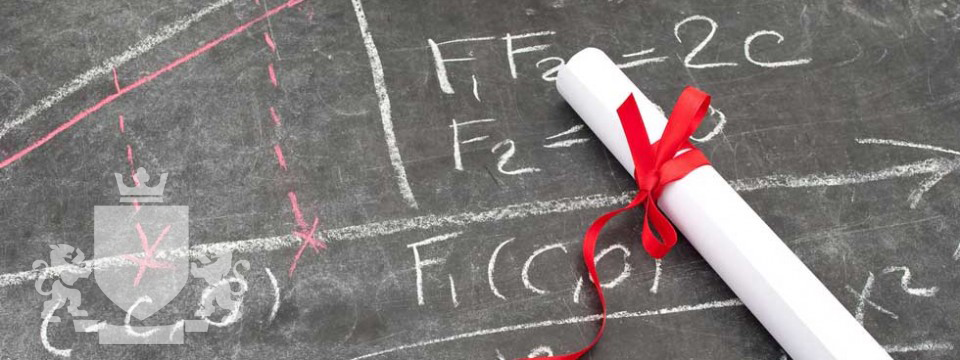Maths
Outline of Course/Qualification:
GCSE Mathematics
The GCSE follows two tiers based on the previous Higher tier (grade point scores 9 – 4) and the Foundation tier (grade point scores 1 – 5)n and at kings we follow the AQA exam board.
GCSE skills are taught from the start of Year 7 and GCSE maths questions and problems from Foundation level papers are practiced regularly to develop exam skills, strategy and a deeper understanding of the topics. Pupils are in classes with pupils aiming for similar grades so that a focused personalised curriculum can be delivered.
Year 9 is the beginning of the KS4 content working up to the higher tier.
9 lessons a fortnight (9 hours) are dedicated for Mathematics lessons.
Assessment:
Students will sit 3 exams consisting of 2 calculator papers both worth 80 marks and a non-calculator paper, also worth 80 marks. Problem solving, functional uses of maths and modelling are a key focus in the exams.
Throughout the KS4 programme there will be further assessment so that progress can be monitored. Mock exams will take place over Years 10 and 11 and Learning Cycle Exams will still take place as normal.
To be successful in GCSE Mathematics, pupils need to be able to:
Develop fluent knowledge, skills and understanding of mathematical methods and concepts
Acquire, select and apply mathematical techniques to solve problems
Reason mathematically, make deductions and inferences and draw conclusions
Comprehend, interpret and communicate mathematical information in a variety of forms appropriate to the information and context.
5 areas of maths studied are:
Number
Algebra
Ratio, proportion and rates of change
Geometry and measures
Probability and data handling
Each of the 5 areas contains their own smaller topics and these will be taught in sections of around 2 weeks per topic on average over the course.
Skills taught:
Efficient use of calculators both scientific and basic. Different brands will be used for optimum understanding.
Exam skills, problem solving and breaking down of larger tasks.
Methods – primarily how to set work out and communicate the answer clearly.
Mental and written arithmetic and remembering necessary formulae.
Assessment of applying mathematics and using mathematics to solve problems will also be set in contexts that pupils should be expected to deal with in the real world. Pupils might be asked to answer questions on, for instance, decorating a room or designing a garden; or paying bills or sorting out rotas for shop staff. Finance and real life applications for maths have also become a large focus in the new curriculum.
Students are now expected to communicate their mathematics much more clearly through their working out. This means that they need to set work out in logical steps that demonstrate to the reader/marker what they are doing and what their thought processes entail. Students are also required to remember key formulae and apply that in their answers without the support of a formulae sheet being provided in the exam as in previous years.
Students must be able to:
Carry out routine procedures efficiently, with precision, especially in relation to algebra and number
Reason and communicate accurately, using appropriate terms and correct grammar when developing a mathematical argument (e.g. deduce, justify, generalise, prove)
Apply mathematical knowledge and reasoning, linking mathematical ideas and using mathematical modelling to solve problems
Make connections between different parts of mathematics
Solve real world modelling problems that are less well defined, making assumptions and simplifications
Post GCSE
Mathematics is an essential qualification if you are planning to go onto study the subject further at A level in the King’s 6th Form and at degree level, but the subject is also an essential qualification for life. Number skills are required in almost all everyday situations, such as working out bills, calculating your salary, shopping, dealing with mortgages and investments. Thinking like a mathematician will help to improve your problem-solving and decision-making skills. Mathematics is used in a number of jobs and professions in areas such as Environment, Market Research, Medicine, Teaching, Design and Architecture, Computer Gaming, Accountancy, Health & Society, Business & Money, Entertainment, Science & Engineering, Economics and Sport.
Home Learning:
One weekly maths enrichment club after school is an opportunity for pupils to seek further support.
Home Learning is set every week and consists of mathswatch & practice papers closer to exam period with booklets made specifically to a target grade or to develop a particular topic in more detail and revision/research tasks for 1 hour per week. Maths videos and clips are also available for every topic which allows pupils to study at home and are suited to iPad software. All lessons and resources are uploaded onto Google classroom. Booster classes will take place after school 4-5pm and during half terms closer to exam period.
Top universities for Mathematics are:
Cambridge
Oxford
Imperial College London
St Andrews
Warwick
Check the UCAS website (www.ucas.com) for entry requirements to Higher Education courses of interest; this will provide you with information on courses which have specific subject entry requirements

